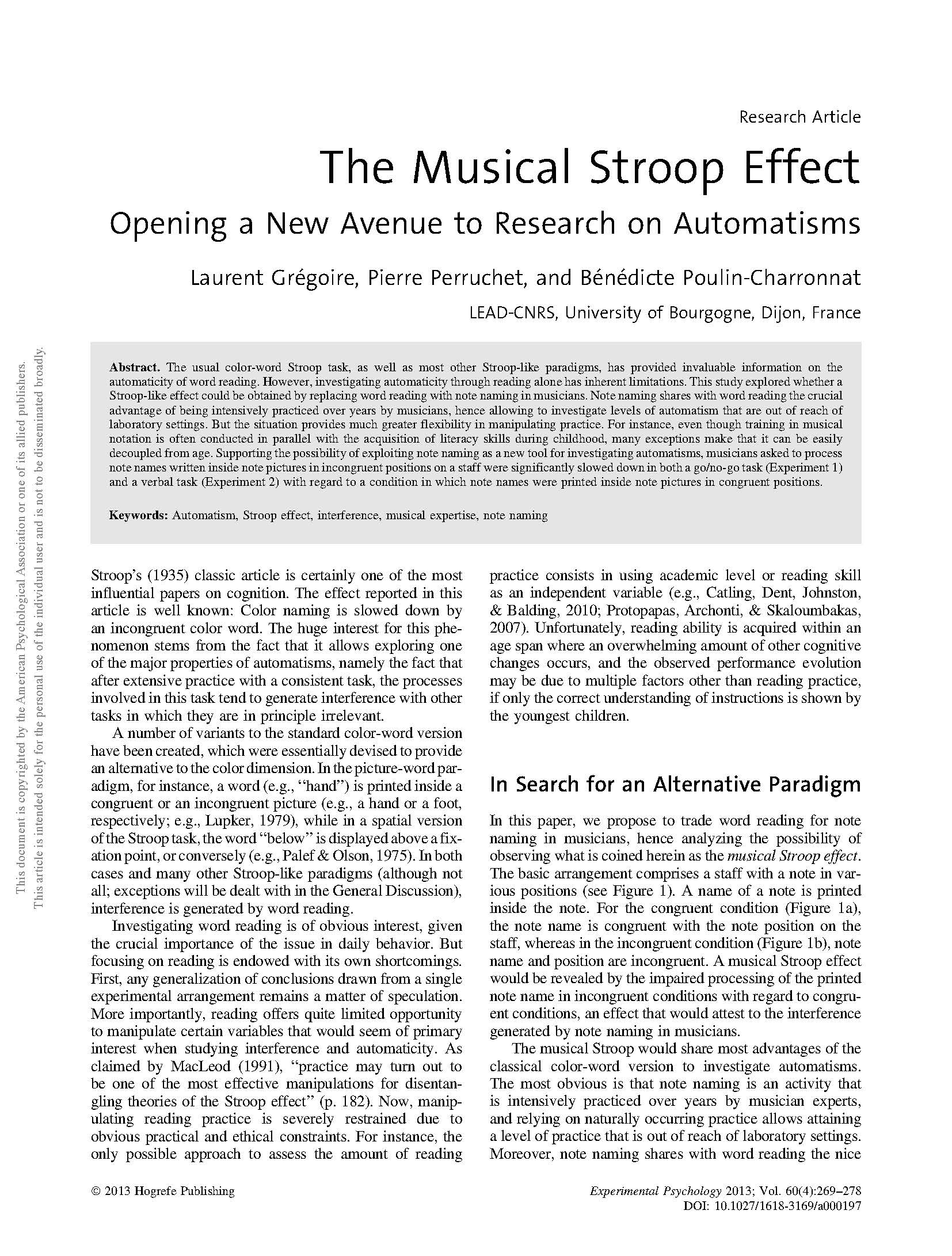The usual color-word Stroop task, as well as most other Stroop-like paradigms, has provided invaluable information on the automaticity of word reading. However, investigating automaticity through reading alone has inherent limitations. This study explored whether a Stroop-like effect could be obtained by replacing word reading with note naming in musicians. Note naming shares with word reading the crucial advantage of being intensively practiced over years by musicians, hence allowing to investigate levels of automatism that are out of reach of laboratory settings. But the situation provides much greater flexibility in manipulating practice. For instance, even though training in musical notation is often conducted in parallel with the acquisition of literacy skills during childhood, many exceptions make that it can be easily decoupled from age. Supporting the possibility of exploiting note naming as a new tool for investigating automatisms, musicians asked to process note names written inside note pictures in incongruent positions on a staff were significantly slowed down in both a go/no-go task (Experiment 1) and a verbal task (Experiment 2) with regard to a condition in which note names were printed inside note pictures in congruent positions.
The Musical Stroop Effect: Opening a new avenue to research on automatisms
